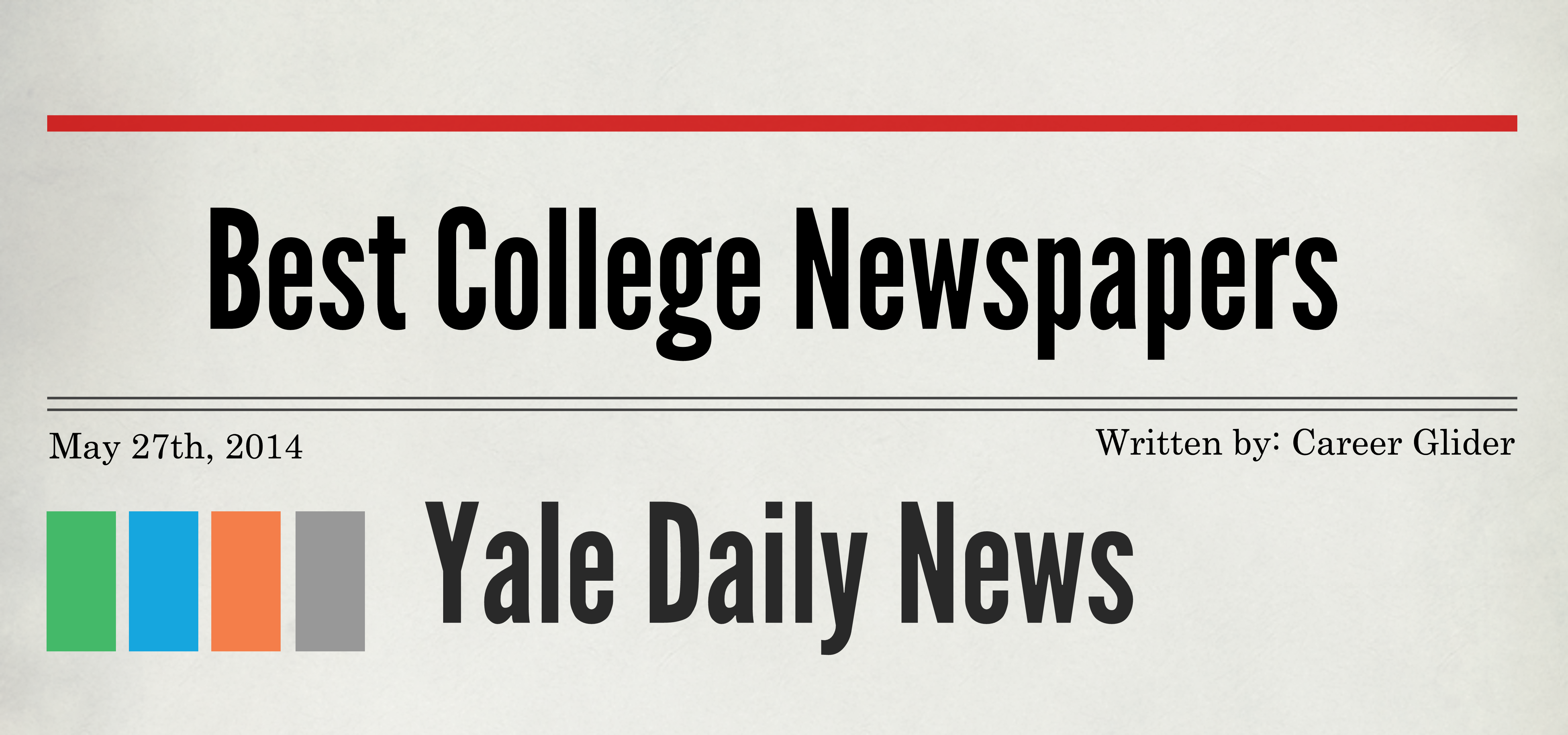Student Career Spotlight: Being a Reporter at Yale Daily News

While this college paper carries Yale’s name, it has been financially and editorially independent of Yale University since its founding in 1878. It holds the frequently-contested title of “Oldest College Daily,” and its redesigned look has been featured in the Poytner Institute book: President Obama Election 2008: Collection of Newspaper Front Pages by the Poytner Institute. In 2009, the Yale Daily News won the prestigious Associated Collegiate Press Newspaper Pacemaker Award.
Yale University

Scott Stern, Reporter/Columnist
Scott Stern
Reporter / Columnist
Bio: Scott Stern hails from Pittsburgh, Pennsylvania. He is a rising senior at Yale University, where he majors in American Studies and is pursuing a joint bachelor-masters degree. He has been writing for student newspapers since his sophomore year of high school. He is the author of “Outside the Box Origami” and the co-author of “Fabrigami,” both published by Tuttle Publishing.
1. Tell me about yourself outside of journalism.
I try to write when I get the chance, especially in non-journalistic ways. A significant amount of my time is spent doing academic writing for class, but I’m also the editor-in-chief of the Yale Record, a humor magazine, so I’ve had some experience with comedy writing. In addition to writing, I love reading, hanging out with my friends, folding origami, and running (very slowly).
2. What typically inspires you to write a story?
I’m usually inspired by one of two things:
- 1. Learning something that I don’t think is widely known, or
- 2. Realizing that I see something that is widely known in a way that is different from the way most people see it.
An example of the first is when I learned that very few of the Yale professors who won an award for best teaching were awarded tenure (possibly because they were perceived to be focusing too little on their research); an example of second is how I came to believe that many students at Yale use the vocabulary of social darwinism without realizing it.
3. How do reactions to your opinions affect your future columns?
Reactions to my stories affect my opinions very little. The vast majority of the criticism and praise that I hear seems not to be based on critiques of my argumentation or style, but rather on genuine differences of philosophy. Certainly I make mistakes and having those pointed out makes me more likely to fact check more assiduously in the future, but I rarely hear reactions that cause me to rethink my overarching philosophy. Perhaps it is a bad thing, but my philosophy is fairly concrete at this point, at least with regard to big things.
4. Which story has gained the biggest response?
I wrote a story that discussed the many reasons why I dislike Yale’s “secret societies” (exclusive senior clubs), which seemed to be widely read. Another column that garnered a considerable reaction (and much hate mail) was one that critiqued and suggested several changes to the Yale Corporation (Yale’s unelected governing board, dominated heavily by CEOs).



Add a comment